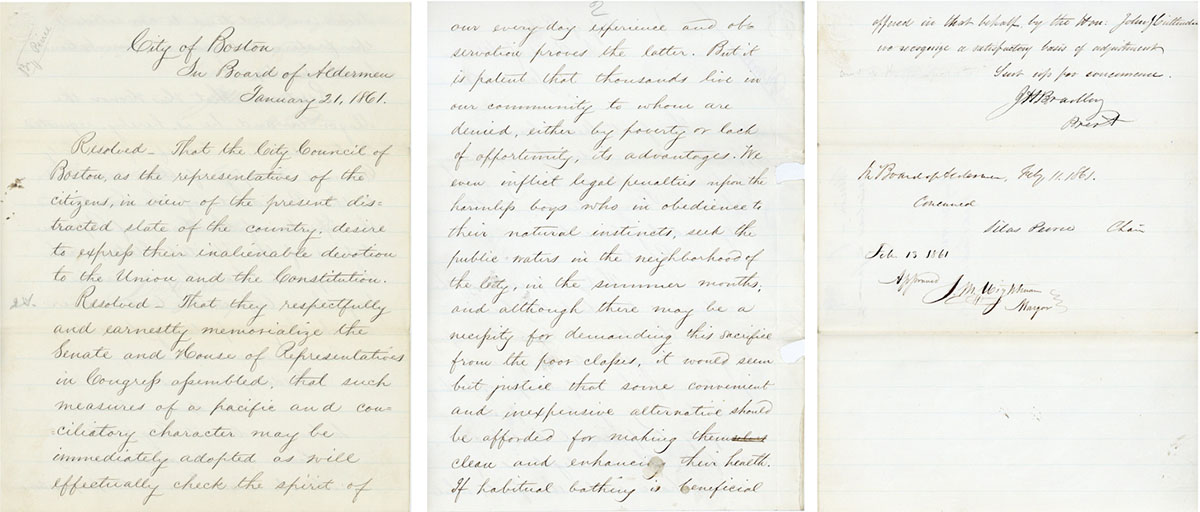Throwback Thursday: When City Council Officially Supported the Union

Images via City of Boston Archives (CLICK TO ENLARGE)
There isn’t a city council meeting scheduled for today, but 155 years ago, an important one was held.
At this meeting, the Board of Aldermen issued a resolution in favor of the Union—that is, the term for the federal government led by President Abraham Lincoln.
The aldermen (or councilors) resolved, “that the City Council of Boston, as the representatives of the citizens in view of the present distracted state of the country, desire to express their inalienable devotion to the Union and the Constitutions.”
The city happened to have done so at the right time, because the Civil War between the Union and the Confederacy started a few months later on April 12, 1861. As a member of the Union, Massachusetts joined 19 others: Maine, New Hampshire, Vermont, Connecticut, Rhode Island, New York, Pennsylvania, New Jersey, Ohio, Indiana, Illinois, Kansas, Michigan, Wisconsin, Minnesota, Iowa, California, Nevada, and Oregon.
If you can’t read the pictured slanted script, here’s what the important parts say:
City of Boston
In Board of Aldermen
January 21, 1861
Resolved – That the City Council of Boston, as the representatives of the citizens in view of the present distracted state of the country, desire to express their inalienable devotion to the Union and the Constitutions.
Resolved – That they respectfully and earnestly memorialize the Senate and House of Representatives in Congress assembled, that such measures of a pacific and conciliatory character may be immediately adopted as will effectually check the spirit of disunion and tend to consolidate the fraternal bonds of our National brotherhood.
Resolved – That His Honor the Mayor be and he is, hereby, requested to transmit , in behalf of the City Council, a copy of these resolves to the President of the Senate and the Speaker of the House of Representatives of the United States, with the request that they would lay them before the bodies over which they respectively preside.


